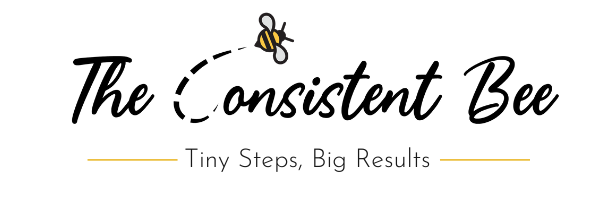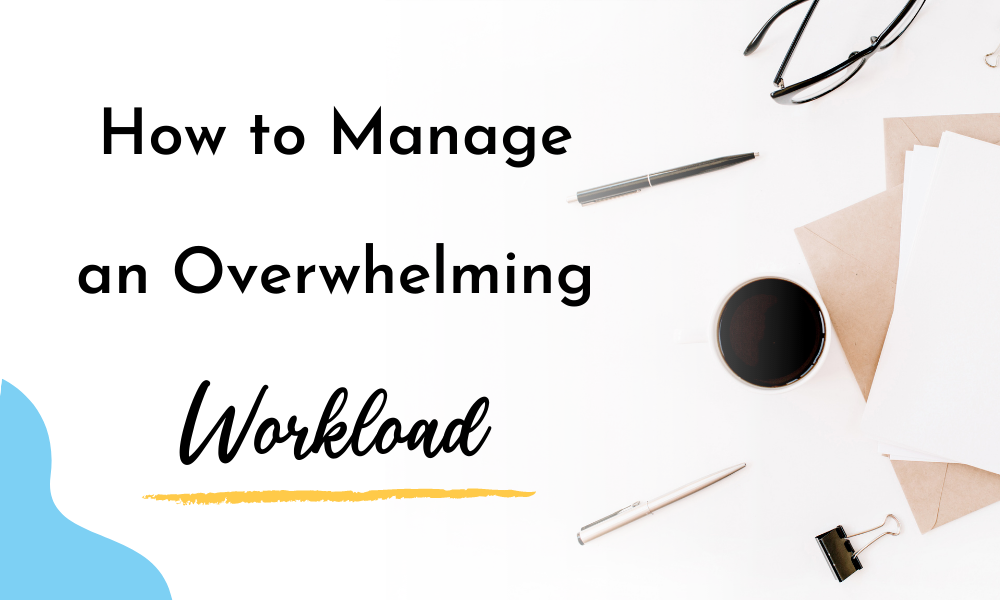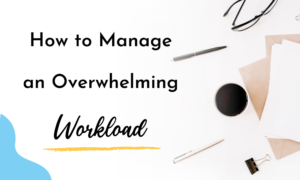Whether you’re working for a company or working for yourself, you will experience days when your workload is just unbearable.
You don’t even know where to start; you feel like you’re losing control of your day.
“How am I going to do this?” You think to yourself.
By implementing the tips I share with you in this post, of course!
I’ve had my fair share of overwhelming workloads so I’ve learned some strategies to reduce the stress and accomplish more.
Keep reading to find out how you can manage an overwhelming workload and get more done than you ever thought possible.
1. Prioritize the tasks
If you have a monster of a to-do list to tackle, here’s how to prepare for your attack.
- First, make a list of everything you have to do.
- Then, number it 1 through 5.
If it’s easier for you to number all of them in a certain order (if you have a lot), go ahead.
I’ve found that it’s easier to number my most important activities first, get those done, and then number the rest.
Use the Action Priority Matrix
Another method is by organizing your tasks based on the Action Priority Matrix.
It’s a four-quadrant graph that allows you to determine what tasks are urgent and important.
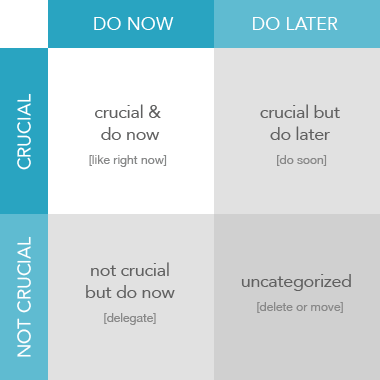
Quadrant 1: Important and urgent. This is reserved for high-priority tasks like urgent deadlines or emergencies. You typically don’t want too many things in this quadrant.
Quadrant 2: Important but not urgent. These are things that don’t need immediate attention but are still important to your success. This includes things like preparing a presentation or doing research for a project.
Quadrant 3: Urgent but not important. This includes things like urgent emails or phone calls, assisting customers that are in front of you, and so forth. Delegate them if you can, to lighten the workload.
Quadrant 4: Not urgent and not important. These are activities like surfing the web for things unrelated to your work, browsing social media, etc. These activities should be avoided if you have serious work to accomplish.
2. Focus on one thing from start to finish
If you’re constantly bouncing around from one task to the next, you’re going to be stressed.
Your brain is wired to focus on one thing at a time.
So don’t overwhelm it even more by switching up your focus every two minutes.
I’ve had so much on my plate before, that my brain wanted to jump at every new task that popped up and tackle it.
However, trying to multitask between too many things is going to interrupt your focus and when you go back to the first task, it’ll be harder to get back in the groove.
Julie Morgenstern, a productivity expert, and bestselling author says, “It takes four times longer to recognize new things, so you’re not saving time [when multitasking].”
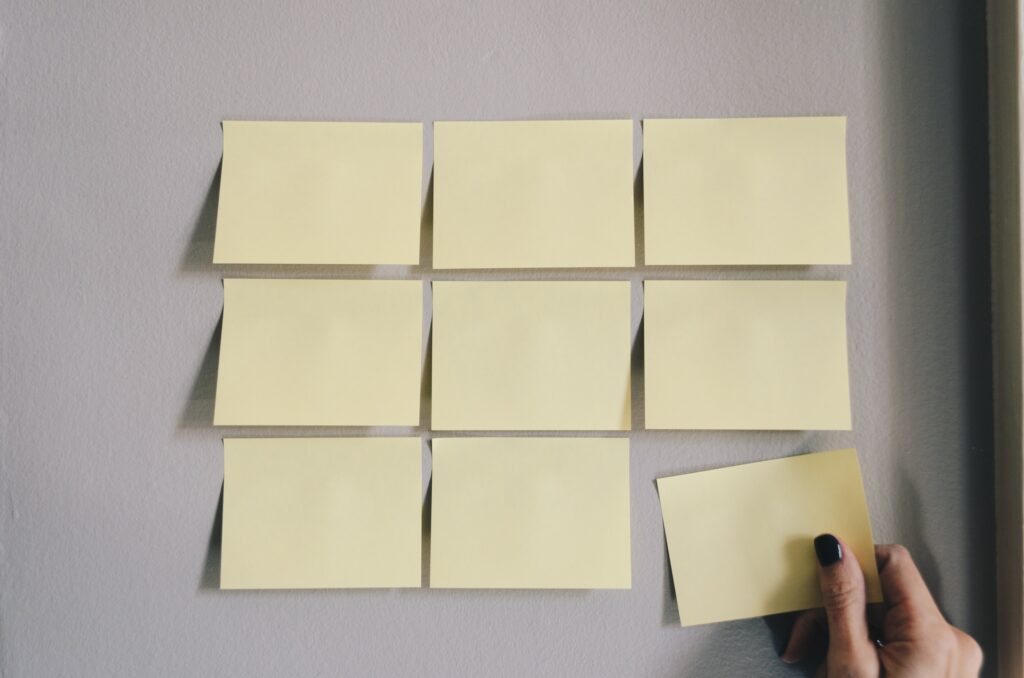
Just finish what you start
If you have to make five sales calls today, cut out a block of time to do it.
“From 9-9:30 am I am going to make five sales calls.”
Let others know you’re plan
If you work with a team of people, communicate with them and let them know you will be working on this task for the next 30 minutes.
That way they (hopefully) won’t disturb you during that time.
Once I started doing this, I felt so much tension just melt away.
Focusing gets you into a flow state
Once I started finishing what I started, with no interruptions, I felt a greater sense of clarity and I performed better.
In other words, I got into a flow state.
Since I wasn’t thinking about my myriad of to-dos, I didn’t feel stressed, just highly focused.
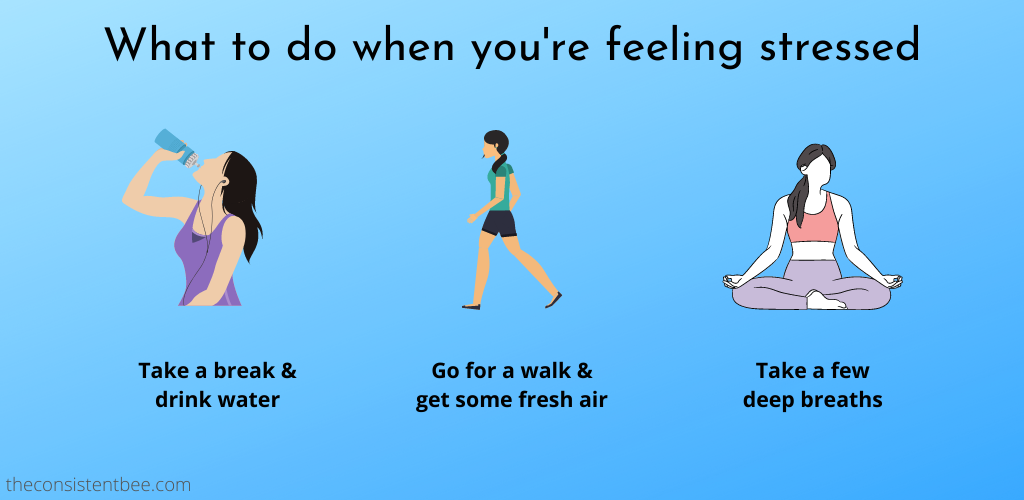
3. Take a break every hour
If you remember nothing else from this post, let it be this one.
Take a damn break!
When you’re overwhelmed by your workload, you may think the best thing to do is to keep working.
Or else you won’t get everything done, right?
Wrong.
As someone with a workaholic personality, I fell into this trap one too many times.
If you never take breaks, you will become exhausted and you won’t be as productive as you want.
Your brain will begin to feel like it’s going to explode and you’ll just burn out.
Go for a walk, drink water, meditate
The break doesn’t have to be long, just a few minutes of stepping away from your workspace is enough to give your brain time to recharge.
You can
- Go for a walk around the building
- Meditate
- Stretch
- Get a drink of water or have a snack

4. Minimize the number of tabs you have open
No pun intended here.
When I say minimize, I mean completely close out those tabs.
This goes back to the “out of sight out of mind” concept.
For a lot of people, having a clean and neat workspace allows them to maintain greater focus and lower their stress.
This includes your computer screen.
If the border of your screen is riddled with 17 tabs, it’s going to distract you from your work.
You may be thinking (like me), “Well those tabs have important information that I’ll need.”
Everyone’s situation is different, but for me, it does more harm than good keeping them up.
If you’re keeping the tabs open because you want to remember to do something, try writing it down on a sticky note or setting a reminder.
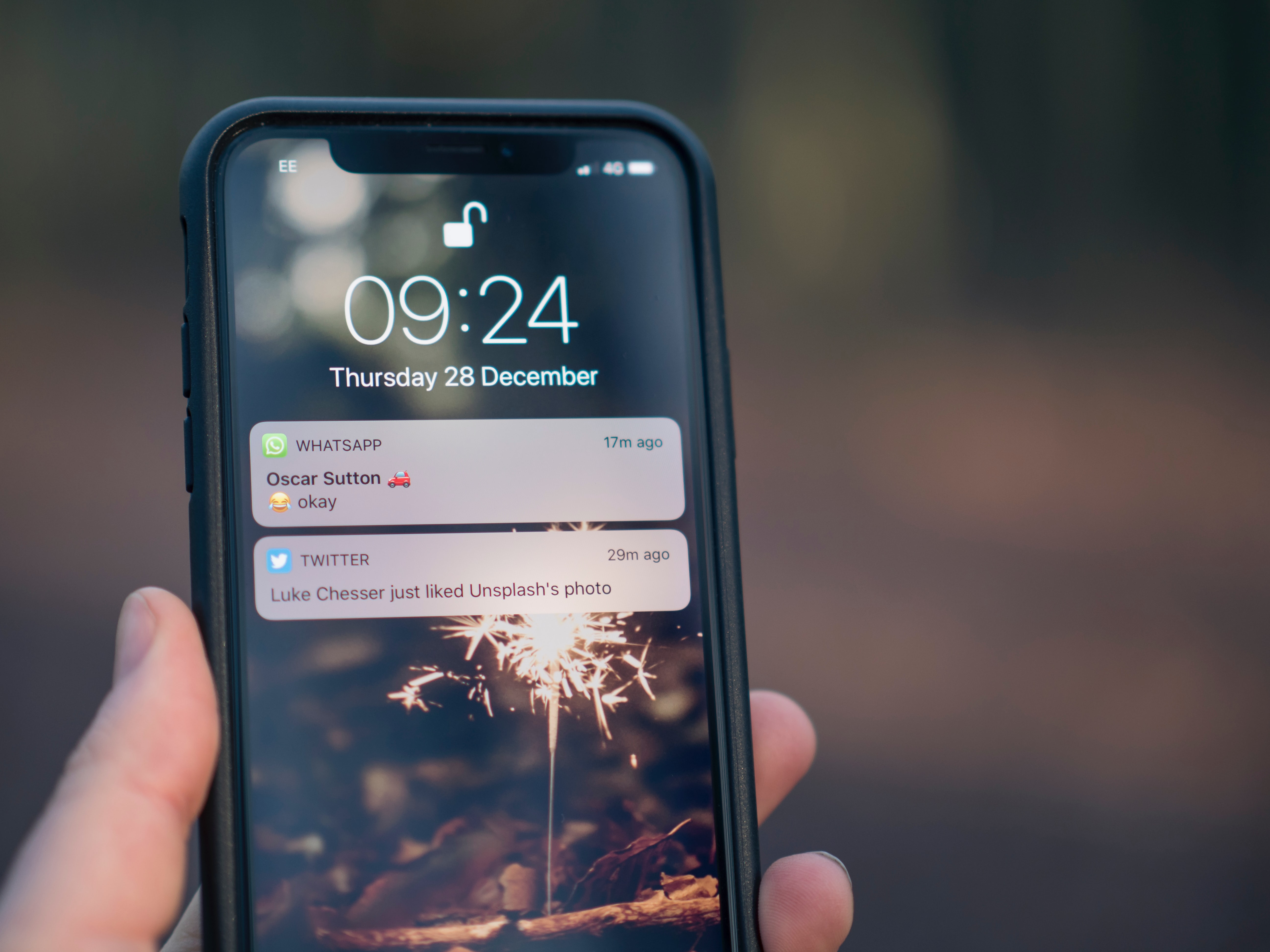
5. Turn off your notifications
If your phone is chiming with every social media notification and email alert you get, it’s going to be harder to get things done.
The most important thing you can do when you have a heavy workload is to prioritize and focus on one task at a time.
If your focus is constantly being yanked away from the important stuff to check lower priority items, you’re just going to stress yourself out more.
Before you know it you will have only checked one thing off your list and now you’re feeling even more overwhelmed than you did to start.
Do this instead
Put your phone somewhere you cannot see it or touch it.
That may be in your purse, a drawer, or a whole other room.
If you can’t resist going a couple of hours without checking it, try challenging yourself like this:
Allow yourself to check your phone only after you’ve worked for 30 minutes straight, without distractions.
It’s like a little reward you give yourself for working hard.
Good job 🙂
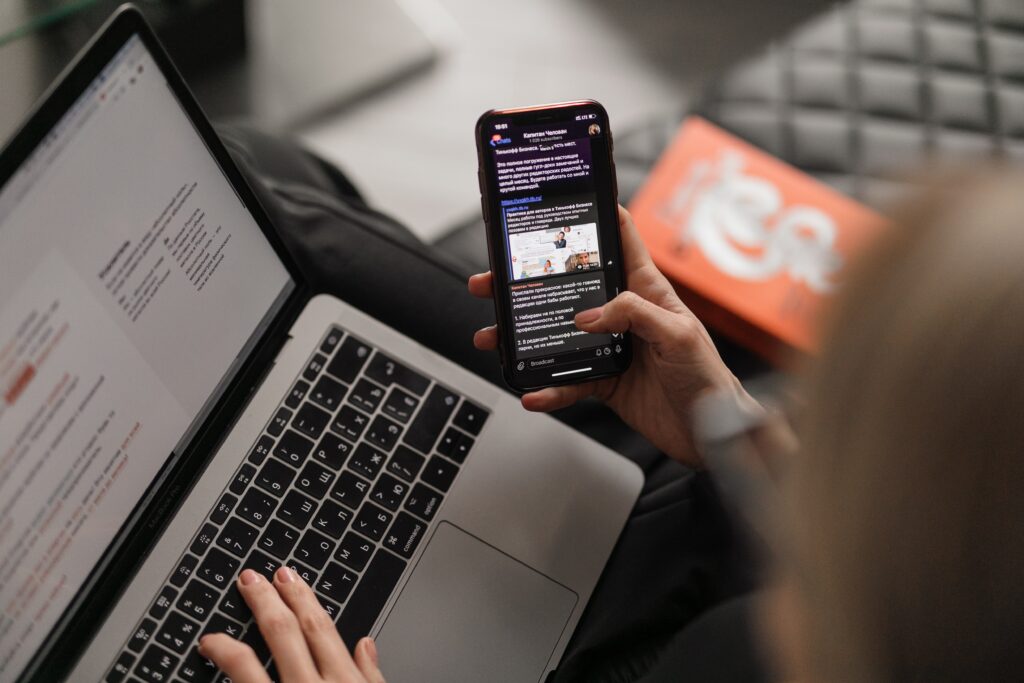
6. Check your emails less often
Another bad habit many of us fall into is checking emails too often.
Studies have shown that office workers spend nearly a third of their workday sifting through their inboxes. A third!
You can actually become addicted to checking your email because hitting the refresh button is like pulling the lever on a slot machine.
It’s not as exciting but it still triggers the same release of dopamine.
It’s the idea of “getting a reward” in our inbox, like a nice email or funny video, that makes us want to keep checking it.
Block out times to check your email
Only allow yourself to check your email 2-3 times per day.
Maybe you check it at 9 am 1 pm and 4 pm.
Be disciplined about checking only during these time blocks and you’ll notice your focus dramatically increase.

7. Set boundaries
Don’t be afraid to set boundaries if your colleagues tend to push things off on you.
Communication is key here.
Be sure to let them know how much you’re dealing with and don’t be afraid to say “no” to certain requests.
You are only human and can only tackle so much in one day.
Whenever more work comes your way, ask yourself these questions:
- Why is this work coming to me?
- Could another colleague take care of this that has less on their plate?
- Am I taking on too much?
Respect your time (and mental health) enough to push back and ask questions.
You don’t have to be rude, just transparent.
I’ve learned that people will actually respect you more if you set clear boundaries.
Final thoughts
Looking at a to-do list that’s a mile long will make anyone turn into a seething ball of stress.
Luckily there are ways to manage your workload so you can get more done, feel less stressed and be proud of your accomplishments come 5 o’clock.
To do this, you’ll want to keep these tips in mind:
- Make a list of priorities
- Focus on one thing from start to finish
- Take a break every hour
- Minimize the number of tabs you have open
- Turn off all notifications – no distractions
- Check your emails less often
- Don’t say yes to everything – set boundaries
Want more helpful tips on honing your productivity? Check out my other post 4 Serious Ways Multitasking Kills Your Productivity.
